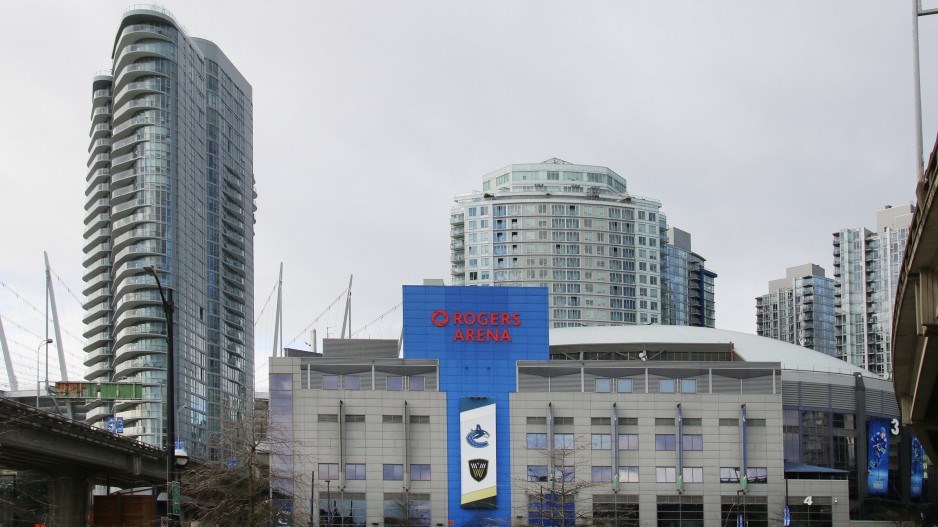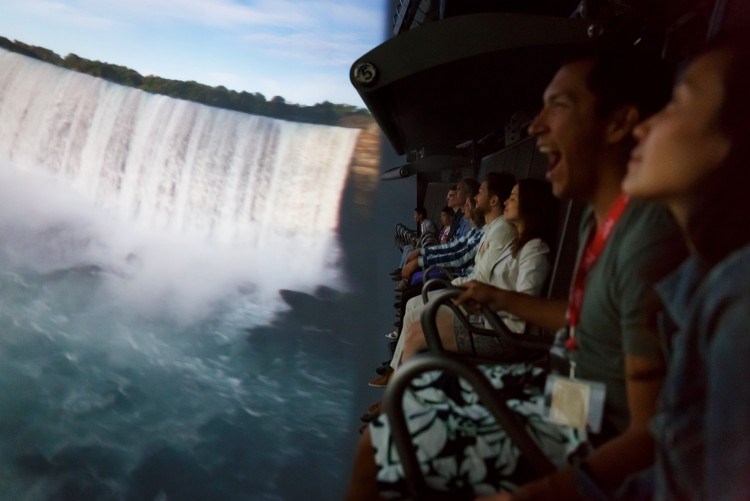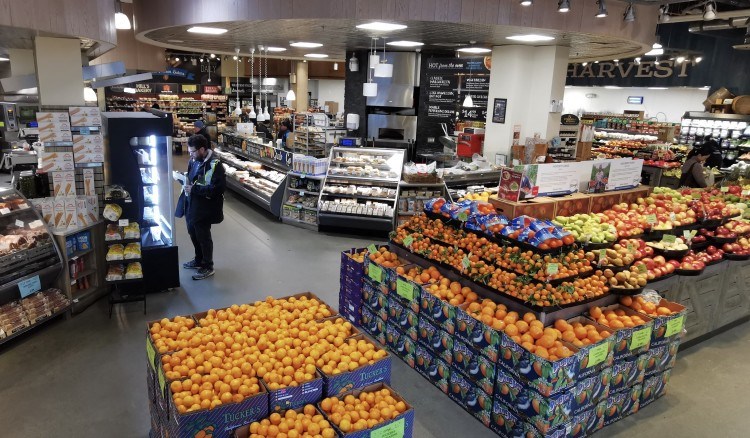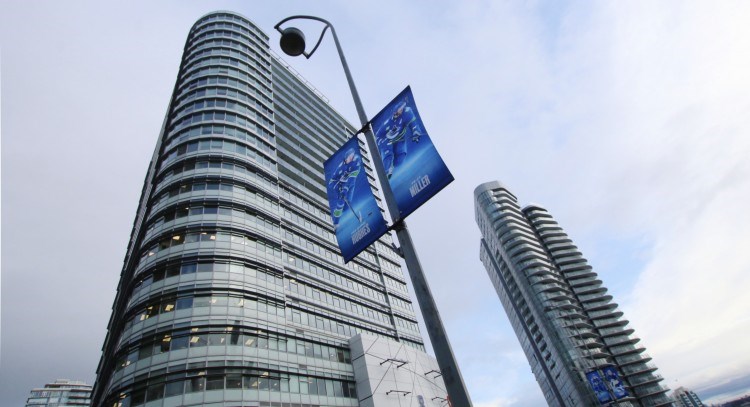This article is BIV's first in a weekly series that profiles British Columbia’s most iconic and successful multi-generational family business empires. This story examines the family behind the Aquilini Investment Group (AIG); next week’s feature will highlight the Gaglardi family’s Northland Property Group.
Two prominent Vancouver business families will likely share headlines this week as receiver Ernst & Young is anticipated to authorize a sale and investment process for a shelved project to build a $3.5 billion ski resort dubbed Garibaldi at Squamish.
The Aquilini and Gaglardi families bankrolled a dream to build a ski resort with 1,600 acres of skiable terrain at Brohm Ridge –a location about 13 kilometres north of downtown Squamish that would have been accessible by a new road.
Garibaldi at Squamish LP then defaulted on $64 million in debts. It and Garibaldi at Squamish Inc. owe the Aquilinis and Gaglardis approximately $100 million.
The project is notable for its grand scope, for its decades stuck in the planning stages and for how it underscores the difficulty of building a new ski resort in B.C.
A different consortium in the past decade similarly failed to build a ski resort on Jumbo Mountain in part because of bureaucratic delays.
The recent financial challenges of Garibaldi at Squamish are also significant because they involve two families with have vast business holdings that contribute immensely to B.C.’s economy.
Those two families’ founders – Luigi Aquilini and Bob Gaglardi – have a history of strong working relations and business partnerships, so it was not a surprise when they came together to envision a resort that could accommodate around 4,000 visitors and 1,000 staff.
Indeed, in 1990, Aquilini and Gaglardi joined forces with fellow developers Art Bosa and Nelson Skalbania to pitch the provincial government on a $68 million proposal to develop a ski resort in that area.
Garibaldi at Squamish Inc. eventually incorporated in 2001 – long before Bob’s son Tom Gaglardi and developer Ryan Beedie took Luigi’s son Francesco Aquilini to court, alleging that Francesco had left their partnership and went behind their backs in what turned out to be a successful effort to buy the Vancouver Canucks hockey team.
B.C. Supreme Court Justice Catherine Wedge in 2008 dismissed Beedie and Gaglardi’s lawsuit against Francesco and former Canucks owner John McCaw. The B.C. Court of Appeal dismissed Beedie and Gaglardi’s appeal the following year.
Beedie told BIV this month that time has healed his relationship with Aquilini.
“Francesco and I are good, and have been for years,” Beedie said. “Zero issue with him. We get along well, and I love his restaurants. We are friends now.”
Gaglardi told BIV through an intermediary that he did not have a response on how his relationship with Francesco is going, and that he would not participate in this story.
Aquilinis’ assets tied up in byzantine network of trusts
About a decade ago, media reports estimated the Aquilini family was worth more than $5 billion. More recent estimates have pinned the family’s net worth at about $3.3 billion.
It is impossible to determine the family’s exact net worth in part because their assets are tangled in a byzantine network of trusts.
Tali’ah Aquilini discovered this about a decade ago when she was readying to go to B.C. Supreme Court to try to exact what she considered a fair divorce settlement from Francesco, following nearly 20 years of marriage. The two reached a last-minute settlement in September 2013, which averted public divorce hearings that would have shed light on how the Aquilinis structure assets in trusts and how much those assets might be worth.
Trusts can cloud who owns assets because family members may be beneficial owners of the trust but not the legal owners with access to the assets.
That can make splitting trust assets in a divorce settlement challenging.
AIG sent BIV an email saying that “we are not able to participate in the article at this time,” so BIV did not receive direct answers about the family’s holdings.
The main players in AIG, in addition to 83-year-old Luigi, are his eldest son Francesco, 54, and his two younger sons Paolo and Roberto.
Some of Luigi’s 14 grandchildren are active in the business, but it is too soon to say whether any will assume executive leadership roles within the family business.
Francesco had four children with Tali’ah – now all in their 20s. In 2022 child-support court hearings, each of them alleged that Francesco abused them, and they said in documents that they did not want to see him.
Francesco sent media a statement at the time saying he categorically denied the child-abuse allegations, and that he was “outraged” by them.
Francesco has a fifth child, a daughter, from a previous relationship.
Roberto similarly has five children, while Paolo has four.
Paolo has been a public advocate for autism research and funding since one son, Christian, was diagnosed with autism more than 25 years ago.
The family’s philanthropy includes various Canucks-related projects, such as the Canucks for Kids Fund, Canucks Place and the Canucks Autism Network.
Donations have also gone to foundations such as the David Foster Foundation.
AIG also donated 600 acres of land in Pitt Meadows and Maple Ridge to create the Codd Wetland Ecological Conservancy Area and the Aquilini Land Conservancy.
Aquilinis have increased stake in tourism and hospitality sectors
Garibaldi at Squamish aside, AIG has substantial holdings in B.C.’s tourism, hospitality and entertainment sectors.
One coup for AIG was buying a 50-per-cent stake in the Vancouver Canucks during the National Hockey League’s lockout in 2004.
The owners and the NHL Players’ Association soon afterward agreed that teams would have mandated caps on the total salary compensation paid to players – something that the owners wanted.
That cap has acted as a headwind against rapid increases in player salaries, and making it easier for owners to operate teams profitably.
The Canucks do not reveal revenue and profit figures, but media reports estimated that the team was generating about $20 million in annual profit 20 years ago.
The Aquilinis bought the remaining 50 per cent of the team in 2007, with the total cost for the team estimated to be in the range of $250 million, though no official price was ever disclosed. The value of the franchise in 2023 was estimated at US$1.2 billion by Sportico.
AIG also owns Rogers Arena – home of the Canucks – as well as dozens of restaurants and hotels.
Entrepreneurs and former BIV Forty under 40 alumni Stephen Geddes and Andrew Strang created Soaring Attractions LP with AIG, and spent $16 million to launch FlyOver Canada at Canada Place in 2013, thanks largely to AIG’s investment capital.
“We think it’s a great investment,” Francesco told BIV at the time. “About eight million tourists come to Vancouver every year, and this is just one more thing for them to do.”
The entrepreneurial duo and AIG then spent US$20 million to expand to the U.S. in 2015 by building FlyOver America at Bloomington, Minnesota’s Mall of America.
Soaring Attractions sold FlyOver Canada to Phoenix-based travel and events company Viad Corp. (NYSE:VVI) for an undisclosed amount in late 2016.
The result was the curious situation where Canadian AIG owned FlyOver America and an American firm owned FlyOver Canada.
AIG also owns two golf courses – Golden Eagle Golf Club and The Falls Golf Course.
Restaurants comprise one of the bigger parts of AIG’s portfolio.
The group bought B.C. rights to Yum Brands Inc.’s (NYSE:YUM) Pizza Hut restaurant chain around 2005.
AIG now touts itself as the second-largest Pizza Hut franchisee in Canada, with 48 locations throughout the province.
The company then sought to add upscale dining options to its portfolio.
In March 2014, Jack Evrensel sold his Toptable Group to AIG for an undisclosed amount. Toptable then included the bakery Thierry, local high-end restaurants CinCin, Bluewater Café and West, and Araxi in Whistler.
West closed at the end of 2019, but the division has expanded in scope and geography.
Toptable added two Yaletown businesses: the butcher Luigi & Sons and the fine-dining Elisa restaurant.
Additions in Whistler include Bar Oso and Il Caminetto restaurants. The company also opened Victoria’s Marilena Café + Raw Bar last year, and has opened two Toptable restaurants in Manhattan: Oceans and Carlotto.
AIG has been long known for owning a 50-per-cent stake in Pacrim Hospitality Group, which years ago managed about 60 hotels across Canada operating under brands such as Super 8, Holiday Inn and Crowne Plaza.
Pacrim’s website now lists eight hotels in its portfolio, and AIG’s website no longer lists Pacrim as one of its investments.
BIV specifically asked AIG in an email if the company still owned its 50-per-cent stake in Pacrim but did not get a response.
AIG lists on its website direct ownership in nine hotels across Canada, including the Atrium Inn in Vancouver – an accommodation that entices guests with booking packages that include $20 gift cards for Pizza Hut plus free delivery.
AIG’s vast holdings include ventures such as a private jet business (Cornell Industries), a waste-to-energy venture (Aquilini Renewable Energy) and even a munitions-services business (MRS Management Ltd.)
AIG also markets its Bordertown movie set in Maple Ridge to film and TV producers.
Aquilini agriculture holdings are vast
Mention the Aquilinis’ agricultural operations and many may think of blueberries and cranberries.
AIG’s Golden Eagle Blueberries is one of the largest blueberry operations in the world, with more than 4,000 acres planted and in development in the Pacific Northwest and 5,000 acres planted and in development in Australia.
Golden Eagle Cranberries oversees more than 1,500 acres of cranberry bogs in B.C., and is one of the largest growers in the Ocean Spray Co-operative.
Some vertical integration is possible for AIG’s agriculture ventures because the company also owns the two-store grocery chain Stong’s Market.
Other farming operations include the Golden Eagle Apiaries beekeeping operation, the Golden Eagle Aquaculture venture known for farming sablefish and Sunnyside Dairy in Washington state.
The latter bought 500 acres of Washington state land in 2014 from the Port of Sunnyside for US$5 million, capitalizing on a better exchange rate for Canadian dollars than would have been the case today.
AIG’s agricultural holdings also include an expanding winery division, split into Aquilini Red Mountain Vineyard, and Alder Creek and Windy Ridge Vineyards.
AIG in 2013 bought a former gravel pit and 670 acres in Washington state for US$8.3 million at an auction and then pumped about twice that amount into installing irrigation, building out the winery and vineyards and buying 1,100 additional acres in the state’s Horse Heaven Hills region.
The Canadian dollar was hovering around par with the U.S. greenback and Washington state provided the best value, according to Barry Olivier, who was hired in 2010 to be in charge of the Aquilinis’ wine operations.
The family looked at potential land for their winery division in places such as Tuscany, B.C. and California but decided the best value was in Washington state, Olivier told BIV in 2019.
Wine author and journalist John Schreiner told BIV that the Aquilinis were wise to hire Olivier, who is no longer with the company, because of his vast wine knowledge and experience.
“Barry was then president of a Vancouver wine agency called Liquid Arts Fine Wine and he had been guiding the wine purchases for Francesco’s personal cellar,” Schreiner told BIV.
That 3,000-bottle wine collection was appraised at $789,000 in 2013, according to Tali’ah, who wanted the court to order it sold in order to help her pay her legal bills. Justice Smith declined her request.
Schreiner said he has sampled and enjoyed some of the wine that the Aquilinis’ Washington state wineries have produced.
“They bought a great piece of property,” he said. “Yes, it was undeveloped, but it was in a great area with great vinicultural upside.”
Real estate the DNA in Luigi Aquilini’s rags-to-riches tale
After Luigi married Elisa Carlotto in 1953, she joined her family in Vancouver while he completed military service in Italy, according to her 2015 obituary.
Luigi arrived in Vancouver a few years later and worked at an iron foundry, according to various media reports. He then moved on to work in railway construction, as a landscaper and as a brick layer.
He bought lots and built houses. Building apartments followed, as did other property development.
One estimate, in a 1992 Vancouver Sun article, was that Luigi’s company had completed about $3 billion worth of construction in the province, while approximately $250 million worth was under development.
Some of AIG’s property development was in Montreal.
Luigi in the late 1990s bought Montreal real estate and kept it vacant and boarded up for years, according to a 2004 article in the Montreal Gazette, which called one site in Old Montreal “an eyesore.”
In the mid-aught years, AIG in Montreal reportedly completed projects such as a $5 -million, 253-condo tower and a $100 million, 416-unit rental property.
Other real estate activity included building hotels in B.C., Quebec, the Maritimes and Italy.
AIG also built and owns rental towers next to Rogers Arena.
AIG’s Aquilini Development has been behind multiple projects in Tsawwassen, such as Salt & Meadow, for which it is selling units in that project’s third six-storey building.
Its Lupine Walk condominium project in North Vancouver is sold out, while a project known as Kʷasən Village, in Burnaby, is in the planning stages.
Vancouver’s Olympic Village offers a prime example of the family’s acumen for buying and flipping real estate.
AIG in 2014 bought 67 condominiums in the development in a block sale for $91 million, helping the City of Vancouver unload the last of the project’s units, and pay down debt owed on what had been a troubled development.
BIV asked Francesco in 2020 if the company still held what would have been significantly more expensive real estate.
"All but five or six of the units have been sold,” he texted back. •









